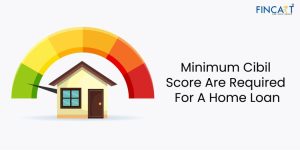Table of Contents
Toggle“Pay off your debt first. Freedom from debt is worth more than any amount you can earn”- Mark Cuban
It is the common man/middle class that faces the majority of financial, mental, or physical health problems. The milk & vegetables hike, the petrol hike due to rising inflation, impacts the middle class the MOST!
To top all this debt is something that amplifies the burden among the middle class.
Getting into a debt trap is easy but getting out of debt is extremely difficult. It is common for people to live their lives on borrowed money, but with that comes the risk of falling into a debt trap.
When your income cannot support the repayment of your loan or debt, you fall into the debt trap. Slippage in repayment leads to interest accumulating, further increasing your debt and subsequent outflow of funds.
How debt is affecting your mental health?
1. Increased stress
Being in debt not only affects your physical health but also your mental health. Constant thoughts are revolving in our minds, thinking of ways we can use to repay the loans. Debt often leads to prolonged stress, anxiety, and depression in an individual. Your self-esteem goes down as you might be stressed with the next upcoming bills and debt collector calls.
2. Reduced opportunities for development
Do you find yourself in a situation where your development opportunities are limited? There is a saying that goes, “It takes money to make money.”. There are several ways to develop professionally, such as higher education, training, entrepreneurship, and coaching.
Investing in your personal growth will likely be less likely if money is tight. Rather, you tend to focus on immediate needs. You may also be unable to start a business, obtain funding, or change careers due to a lack of capital or a poor credit history.
3. Social isolation
Financial stress can be isolating. There may be times when you feel embarrassed about your financial situation. In the absence of funds, you may not feel comfortable attending social events with friends and family. You might be worrying about your finances, even while spending time together.
How to pay off your debt?
The top contributors to debt are mainly credit cards and loans like personal loans, and payday loans.
1. Make sure you understand your loans:
Do you know how much your loan is due? Did you pay your monthly installments on time without missing any deadlines? Is the interest rate clear to you?
Make a note of all the important details in your online loan account if you do not know the answer to any of these questions. When you have multiple loans, tracking the details can be difficult. Contact your bank manager if you find it overwhelming.
Apart from this, make sure you understand what the minimum payment is for each loan. As a result, you will be able to organize your debt and make a plan for repaying your debts.
Don’t forget to make your credit card payments as they have higher interest rates than most loans. If you fail to pay your bills on time, your debt may balloon and land you in deeper trouble.
2. Prepare a monthly budget
Have you consulted with a certified financial advisor to establish a monthly budget for your expenses? In the absence of such professional guidance, you may find it challenging to maintain the desired level of control over your finances. A budget will not only help you stay on top of your spending but also prevent you from going into debt again. If spreadsheets aren’t your thing, don’t worry. You can track your spending using several user-friendly apps.
Organizing your expenses is best done by categorizing them according to their categories: grocery, fuel, food, and entertainment. The next step is to determine how much you will be giving to each bucket. To arrive at reasonable figures, you can review your previous month’s account summary.
It goes without saying that when paying your debt is your priority, you will also need to create a tab for loans. You should put money into it first, and then towards the rest of your expenses.
But is budgeting not your cup of tea? Think about it this way. The situation is temporary, and you will be able to regain control over your finances after you have paid off your loans.
Also Read: The 5 Simple Habits of Financial Fitness!
3. Your highest-interest debt should be your priority
If you are struggling with your finances at this point, thinking about your highest interest rate may seem daunting. Are you aware that your highest interest rate is increasing your overall liability?
An important portion of your monthly installment goes toward interest and not principal when you pay your installment. This is why experts recommend arranging your debts in decreasing order. Clear the first loan first, then the others in that order. As a result, you will be able to save money in the long run.
Ideally, you should pay a little more toward the first loan account on your list than the minimum amount due. Make sure you don’t miss a payment by setting up auto payments.
4. Consider debt consolidation
Is it difficult to track multiple loans because of your busy schedule? Does the cumulative interest rate on your various loans increase your overall liability? If so, you may want to consider debt consolidation.
This method involves taking one loan to pay off all your other loans. Before making the decision, however, you should consider a few things. First of all, if you are irregular with your monthly installments, chances are your credit score has plummeted.
You may not be able to obtain another loan from a bank in that case. If they do, you may be required to pledge something as security for the loan. The interest rate on an unsecured loan may not be favorable.
Last but not least, it is equally important to consider the loan’s terms. A longer loan may have a higher long-term liability.
When it comes down to it, a bit of soul-searching will help you decide what is right for you. For peace of mind, you might as well go ahead with debt consolidation. Nevertheless, if you are hesitant to take on the increased liability that comes with the new loan, you may be better off without it.
Also Read: Your Ultimate Guide to Financial Planning
5. Stay motivated
Staying motivated can be challenging when you’re paying off loans, but it’s important to stay focused on your goals. Set small milestones and reward yourself when you reach them to keep yourself motivated.
By following these steps, you can create a plan to pay off your loans and achieve financial freedom. Remember, paying off loans takes time and effort, but with persistence, you can get there.




